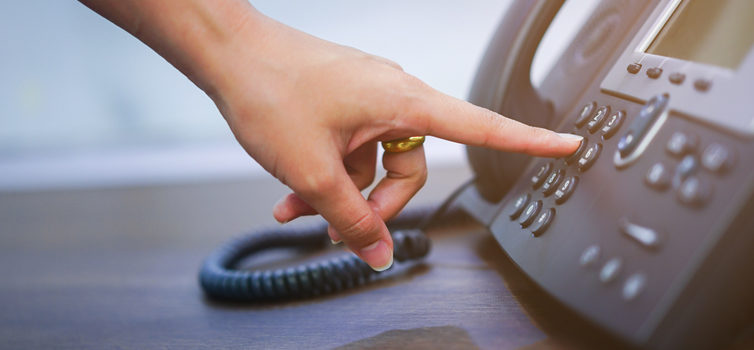Reliable communication keeps law offices running. Clients expect fast responses, clear updates, and total confidentiality. That’s why choosing the right phone system is a decision that deserves close attention. Whether you’re a solo practitioner or part of a larger firm, legal phone systems must support secure communication, remote access, and professional service delivery.
This article outlines the most important features to consider when evaluating phone systems for legal offices.
Quick Takeaways
- Legal phone systems must offer strong call encryption and secure access controls
- Intelligent routing and voicemail transcription help keep communication efficient
- Integrations with case management software reduce manual work
- Mobile access supports responsiveness across office and remote settings
- System reliability and clear pricing make long-term planning easier
Call Security and Confidentiality
Client confidentiality is not negotiable in legal work. A breach in phone communications can lead to serious consequences, from reputational damage to compliance violations. Legal phone systems must offer secure call encryption and access controls.
Look for systems with features like call masking, audit trails, and user permission settings. Call logs should be tamper-proof, and any recordings must be stored securely. If your firm handles international clients or sensitive healthcare data, make sure the system meets applicable regulatory requirements, such as GDPR or HIPAA.
Call Routing and Auto-Attendants
Every call into your firm is an opportunity to serve a client, answer a question, or capture new business. Legal phone systems with automated call routing ensure each call gets to the right person without delay. Whether it’s routing by department, practice area, or urgency level, automation reduces the chances of missed connections.
Auto-attendants help reduce pressure on front desk staff. Instead of answering every call manually, a virtual receptionist can handle common requests, direct callers based on their needs, and allow attorneys to focus on billable work. Some systems even offer time-based routing, which adjusts call handling outside office hours or on holidays.

These tools help keep your communication sharp, even during high-volume periods.
Call Recording and Transcription
Having a record of important conversations can help protect your firm and support case documentation. Legal phone systems with built-in call recording and transcription make it easier to track client instructions, confirm details, and resolve disputes.
Look for systems that allow you to turn recording on or off as needed, store files securely, and tag recordings for easy retrieval. Transcription features help attorneys review conversations quickly and reference them during case prep or client meetings.

Integration with Case Management Tools
Lawyers and legal support staff already rely heavily on case management software to keep track of court dates, tasks, billing details, and client notes. When your legal phone system integrates with this software, you reduce the number of tools your team needs to juggle—and eliminate the risk of details slipping through the cracks.
For example, when call data auto-syncs with a case file, your team can track when conversations happened, who was on the line, and what was discussed. Some systems even tag client calls or voicemails directly to matter numbers or billing codes, helping with documentation and compliance.
Integrations also streamline communication with support teams, paralegals, and client service reps. Everyone sees the same information in one place, which improves coordination across your firm.
Custom Hold Music and Messaging
While it might seem minor, what a client hears while on hold affects their perception of your firm. Legal phone systems that allow for custom hold music or messages can turn downtime into a moment of professionalism.
Use this feature to reassure clients that someone will be with them shortly, share business hours, or provide general information about your services. It creates a more polished impression and shows attention to detail—qualities that matter in legal work.
Look for systems that allow you to easily upload your own audio files or select from a library of legal-appropriate voice messages. Just as you tailor your contracts and communication, your phone system should feel like an extension of your brand.
Support for Remote and Mobile Access
Many legal professionals split time between the office, the courtroom, and home. Legal phone systems must keep communications consistent across locations.
Cloud-based phone systems with mobile apps and softphone access let you take calls from any device, anywhere. Features like call flip, voicemail-to-email, and presence indicators help maintain professional responsiveness, even while working remotely.
Voicemail Transcription and Text Alerts
Fast response times can set your firm apart. Legal phone systems that convert voicemail to text and send email or SMS alerts help attorneys stay on top of client needs.
Voicemail transcription allows for quick scanning of messages without needing to listen to every call. Combined with notifications, it becomes easier to prioritize urgent follow-ups and avoid delays—especially helpful for small teams or solo practitioners.
Reliability, Uptime, and Support
Downtime costs money and trust. Law offices need phone systems with high uptime guarantees and responsive customer support.
Look for providers that offer 24/7 technical support, clear service level agreements, and system monitoring. Reviews and references from other firms can also help verify reliability and service quality before making a decision.
Scalability and Transparent Pricing
Law firms change—whether it’s opening a new location, hiring a new associate, or scaling back during leaner months. Your phone system should adapt just as easily.
Cloud-based legal phone systems often offer flexible pricing based on user count or call volume. This allows firms to adjust without renegotiating contracts or dealing with complicated add-on fees. Look for plans that include essentials like call recording, mobile apps, and support services as part of the base package.
Some vendors also offer usage insights and reporting tools. These help you understand how your team uses the system, identify peak call times, and spot inefficiencies in your call flow. This visibility is helpful for budgeting, staffing, and strategic planning.
Choose the Right Legal Phone System Today with Intermedia
Strong legal phone systems support every part of your practice—from client communication to internal coordination. Look for solutions that prioritize security, integrate with your existing tools, and help your team respond quickly and professionally.
Evaluate your current system with these features in mind. The right choice can reduce administrative overhead, improve service quality, and give your firm a stronger foundation for future growth.
Ready to improve how your firm connects with clients?
Explore how Intermedia’s secure, cloud-based communication solutions are built to support the needs of modern law offices. Request a demo today.
July 4, 2025
Explore other posts on these topics: Legal Services




